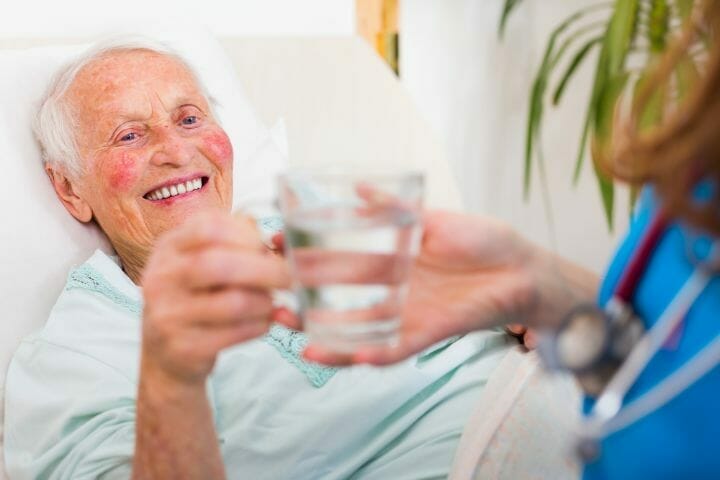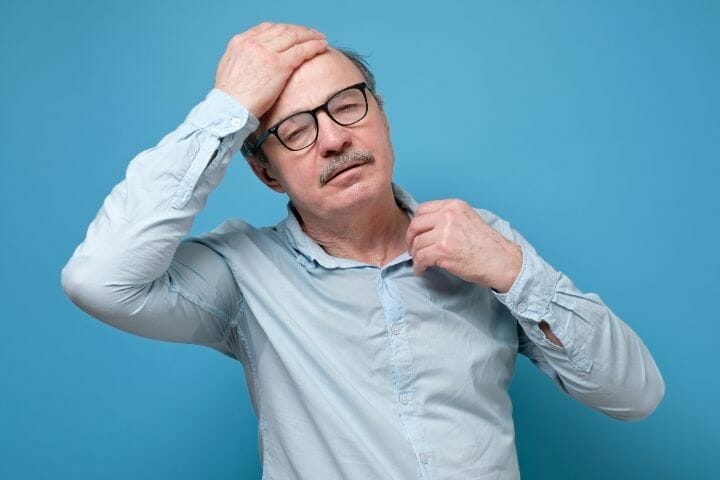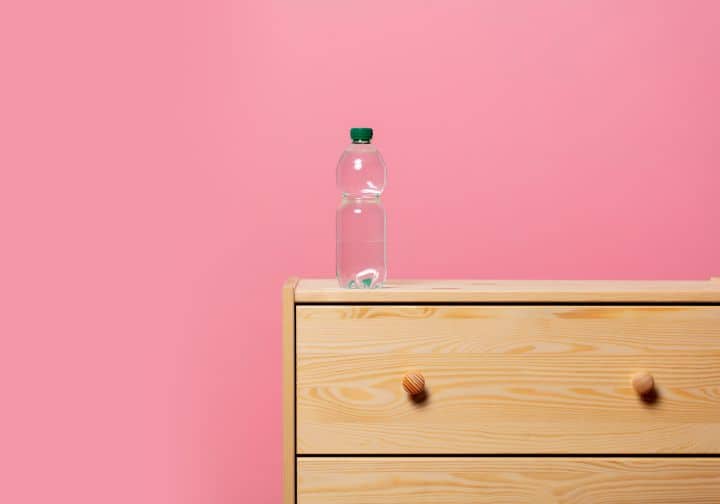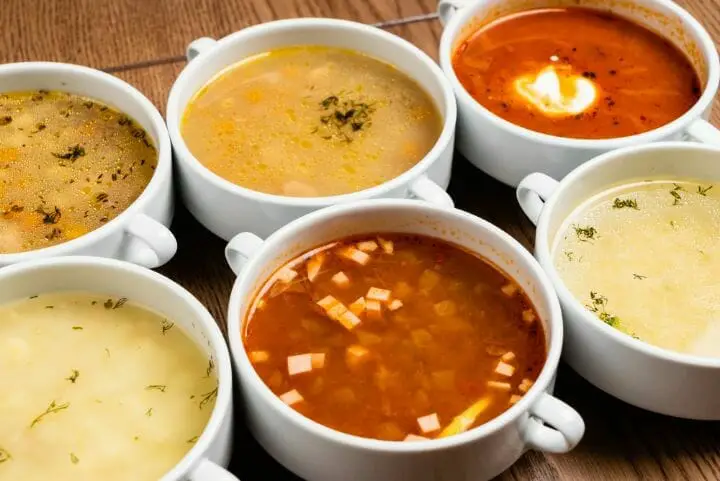So, you, like many caregivers to people are anxious about the fact that that the adult you are in charge of is not enough and you are worried about how to get them to increase their .
Contents
It is essential that people need to be hydrated always. D is one of the top 10 diagnoses for hospital admission of an . can result in unstable , , , etc.
Now, we understand the challenge you are facing; it is extremely difficult to force an elderly person to drink water.
It is easy for you to spot the symptoms; in an will likely present itself with many symptoms.
Mild to moderate symptoms of dehydration in older adults:
- Constipation
- Cramps in limbs
- /dry tongue with thick saliva
- Headache
- Decrease in frequency of urination
- Not producing tears while crying
- Dark-colored urine
- Sleeplessness/irritability
- Weakness and Fatigue
If you are wondering why an elderly patient is reluctant to drink water and concerned about staying hydrated, understand that old age itself is one of the top reasons why elderly hydration is a common problem.
Note: These symptoms may not always be indicative of dehydration in older adults, they can also be caused by other health conditions.
Here Are Some Other Reasons Why an Elderly Adult Is at a Greater Risk for Dehydration:
Medications That Interfere with
A person in old age consumes numerous medicines; like medications for high or other conditions that can be ones that cause the body to release .
What you can do: Consult the doctor and get a fair understanding of the ‘s medications. If there are medicines that result in an of , you can plan ahead to take control of the situation.
Bodily Changes
Aging is a huge cause; people are prone to , they may even suffer from , and clearly, their body’s ability to conserve is reduced.
Reduced Sensitivity to Feelings of Thirst
An is less sensitive to their feelings of thirst. As they are unaware of their thirst and do not notice the , the will reduce.
If the adult relies on thirst cues to reach out for a glass of chance, there is a high chance of dehydration and catching up with him/her.
What you can do: Colorful post its and reminders can work!
Prompt your senior to drink throughout the day by leaving colorful post-it notes throughout the place, especially where they tend to spend time reading, knitting, etc.
Make sure they one full glass of every 2to 3 hrs.
Sense of Taste Changes
As people age, is not on top of their minds. Their taste preferences are different and they show reluctance to consume tasteless fluids! But, they may still be open to a glass of or instead of .
What you can do: Add flavor to without adding unhealthy ingredients. is a good option because it does not naturally include sugar and the variety of flavors can appeal to the .
Another good option is to offer them flavored waters, popsicles, diet coke, and even broth-based soups can be ways of combating your ‘s complaint that is “boring and tasteless”!
You may also like Pedialyte Vs. Gatorade For Elderly – Preventing Dehydration Among Seniors
Here Are Our Recommendations for the Best Way to Keep the Elderly Hydrated:
1. Keep close by at all times
Sometimes, an elderly patient with Alzheimer’s disease or Dementia cannot be aware of fluid intake, and they may not be in a position to notice the dehydration symptoms. Make it a point to help your stay hydrated by placing bottles nearby their bed.
Remember to store in a lightweight, easy-to-open and-close bottle for their convenience.
2. Explore different sources of foods rich in
is not the only way to ensure . Fruits and vegetables like watermelon, cucumber, watercress, and beverages like coffee, tea, natural all contain and are great for replenishing . [Note: Excessive intake of caffeinated drinks can make you urinate more]
If the elderly patient is resisting drinking water and healthy beverages, and you fear that the dehydration is causing more serious problems like kidney stones and affecting kidney function in the older adult.
Make sure that the pros outweigh the cons and their overall health will benefit from the intake of liquids. Always speak with their doctor first before you start offering them sugary drinks or soda. [ Note: Excessive Soda and sugary drinks are not good for the body]
3. Find the right temperature for the beverage
The elder person might prefer hot drinks to cold, or the other way around. Experiment to find out which type they like better.
If they do not seem to drink the herbal tea you give them while it is hot but seem to enjoy sipping it after a while, you can try fixing them an ice tea and see how they like it.
4. Introduce soups during their mealtimes
Many senior people enjoy a hearty bowl of stew or soup. You can always offer them a hot soup broth instead of plain water or coffee with each meal to endure adequate fluid intake.
The broth could be consumed before a meal or during snack time. It’s especially comforting in cold weather.
Make sure to speak with the doctor before introducing soups and other savory liquids into the their sodium
5. Treat them with popsicles
Okay, young or old, popsicles are a treat for all!
Your elderly adult would most likely love a homemade popsicle made from or a mix of juice and great treat and a great way to get more fluids into the body.
6. Pair breakfast with smoothies, milkshakes,
A delicious smoothie with your older adult’s favorite fruits and a sprinkling of nuts would be a tasty option to get them to consume liquids. Milkshakes on a hot, sunny day could also be a great option.
7. Offer them a sports drink
We get it, these are not the healthiest of options, but if your elderly adult does go out in the sun for a walk but still refuses to intake any fluids, you can try giving them a sports drink to get some water content in the body.
If they like the flavor or texture of these options, they may be more willing to them regularly.
Take frequent breaks. If doing activities outside in the heat, or even indoors, make sure you are taking rest breaks. The heat can quickly decrease the energy levels of individuals.
You may also like Hydration Balls for Dementia and Elderly Patients
Common Signs of :
If the signs above are present but ignored, they can become life-threatening and the proceeding symptoms could occur:
- Bloated stomach
- Convulsions
- Delirium/Confusion
- Kidney failure
- No sweating
- Rapid, but weak heart rate
- Seizures
- Sunken eyes
If the elderly adult is displaying one of the above symptoms, and you are unable to see any change even after administering fluids, you need to take them to the Emergency Room immediately.
How Much Water Do Seniors Need?
A known rule about the amount of water an elderly must intake is always 1/3rd of the weight of the person’s body. thus, one must drink at least this much water every day.
Let’s take the case of a 150-pound person, this person would need 50 ounces of water daily, which is about six 8 ounce glasses of water.
Water consumption is also dependent on the weather conditions; in summer, you sweat more and the loss of body fluids needs to be replenished with more liquids than what is needed in winter.
In the case of older adults, they need to take different medications for multiple health conditions, it’s important to talk with their doctor to find out how much water is best for their body.
You may also like Best Non Plastic Water Filter Pitchers
Can Home Care Help Your Elderly Adult?
If your work and busy schedules do not allow you to monitor the elderly individual closely to manage dehydration and keep them healthier, home care can help manage and keep your loved one healthy!
They can draw up a personalized plan and of course, there are nurses and trained staff to monitor the elderly and take care of their needs. Home care benefits the elderly by:
- Preparing a balanced, healthy meal customized for them.
- Ensuring that they are hydrated, healthy, and getting the right amount of activity.
- Managing their medications; Caregivers can monitor their medicine intake, and can help them be hydrated all through out the day.
In a nutshell, there are multiple ways to keep your beloved elderly from dehydration and its consequences. We hope that our suggestions have proved useful and informative to you.
Do let us know how you managed to keep your elderly healthy and hydrated in the comments below!





